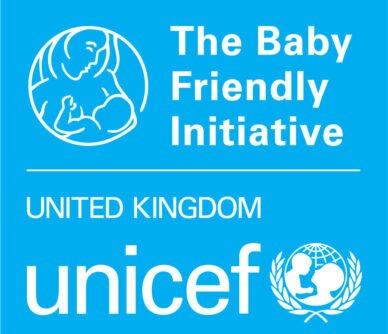Donor Milk Banks: protecting the health of preterm and sick babies
19 June marks the start of Scotland’s National Breastfeeding Celebration Week (NBCW) 2017. The theme is changing the conversation around breastfeeding and culture. In this guest blog, Debbie Barnett, Donor Milk Bank Coordinator and Neonatal Infant Feeding Advisor at Queen Elizabeth University Hospital gives us a UK perspective on donor milk banks and the importance of changing perceptions of donor milk for the UK’s most vulnerable babies.
Much has been written about the benefits of donor breast milk for preterm and sick babies where maternal milk is unavailable. Donor milk banks offer screened pasteurised donor milk, a safe alternative to formula as recommended by the World Health Organisation, European Society for Paediatric Gastroenterology, Hepatology and Nutrition and the American Academy of Paediatrics.
Donor Milk Banks: A UK Perspective
The UK Association of Milk Banks (UKAMB) is a registered charity set up in 1977 to support milk banking in the UK. UKAMB has supported NICE to produce guidelines for the safe operation of milk banks and continues to work with milk banks to implement best practice, providing education and support for milk bank staff and the wider public. UKAMB also represents milk banking at conferences, symposiums and on parliamentary working groups.
UKAMB currently has 16 milk banks registered on its website:
- One in Scotland, a nationwide service covering all 14 territorial health boards
- One in Ireland, working as regional service funded by the five legacy trusts in the North and billed per litre in the South
- 14 in England mainly operated and funded by local trusts.
Currently Wales has no territorial milk bank and the 14 milk banks in England vary in size and efficiency with no consistent approach to the provision of donor milk across the country. The largest milk bank in England works on a not-for-profit basis and the costs charged cover all aspects of the operation ensuring future sustainability. It uses a hub and spoke approach to cover large areas which otherwise may not have access to human milk. A new eagerly awaited milk bank will start operations very shortly as a not-for-profit enterprise with an eye on becoming a biobank to support breast cancer and other wider research. It hopes to cover London and the south east.
Why do we still have variable and inequitable access to donor milk across the UK?
A recent framework document published by the British Association of Perinatal Medicine,
The Use of Donor Human Expressed Breast Milk in Newborn Infants, points to some of the key reasons for this:
- Differing opinions amongst health professionals of the benefit of donor milk
- Milk banks vary in size and output with no nationally coordinated service
- Need for better evidence to show clinical effect and cost-effectiveness of provision of donor milk.
Whilst there is an undeniable body of evidence supporting the wonders of mothers’ own milk, when this is not available donor milk is widely regarded as the next best option. There is a need, however, for the development of further research to fully understand the clinical effect of donor milk, particularly the impact of the pasteurisation process used to make donor milk safe. That being said, it is widely recognised that donor milk helps to protect the health of vulnerable babies; for example, it can reduce the incidence of Necrotising Enterocolitis (NEC) in preterm babies, a devastating gut condition which can have lifelong and costly health consequences.
To support continued research into these benefits of donor milk, we need efficient, cost-effective milk banks which are able to meet the recommendations of the NICE guidelines. In addition, milk banks are seen as pivotal to promoting, protecting and supporting breastfeeding: the provision of donor milk does not exist in isolation of breastfeeding and breastfeeding support. We recognise that breastfeeding is now the collective societal responsibility; should the provision of donor milk to the most vulnerable infants in the UK be less of a responsibility?
Why donor milk matters
Louise always knew her pregnancy would be high risk as she had a heart condition, cardiomyopathy, a disease affecting the heart muscle. At 23 weeks into her pregnancy she went into heart failure and at 29 weeks the decision was made to deliver her baby by caesarean section after he had stopped growing. So five days later, after a course of steroids injections for mum to help prepare the baby’s lungs, Ethan was born by caesarean section weighing just over 1kg. He was ventilated and stabilised, shown to mum and then prepared for transfer to the local NICU. Louise had always known that there was a chance that Ethan would be born prematurely and had made the decision that she would like donor milk to be his first food until she was able to provide her own milk.
Louise spent six days separated from her baby due to her own ill health and despite support never managed to get a milk supply established, only ever producing around 50mls a day though she continued to express for 18 weeks. Ethan was fed donor milk for the first six weeks of his life. Louise says, “during his time in NICU he had several infections requiring antibiotics and it was at these times I was most thankful for the donor milk; I am convinced it helped protect him against more serious gut infections.”
I tell anyone I can that he was on donor milk. I don't find it shameful or weird. I did my best and he got what was best for him at the time. As someone who expressed daily for 18 weeks, I know the effort the donors are going to and I will never stop being grateful for their efforts!





